Back
Vishu Bheda
•
Medial • 1y
Peter Thiel on the type of company more startup founders should build Peter Thiel, the co-founder of PayPal, believes every startup should ask, “Can this company become a monopoly?” He identifies three common paths to monopoly: 1. Fast distribution of a simple product (e.g., Twitter). 2. Technological breakthroughs that improve over time (e.g., SaaS software). 3. A game-changing innovation (e.g., Bitcoin). But there’s a fourth path that’s often ignored: Complex Coordination. Complex coordination happens when a company combines many existing elements in a completely new way, creating something incredibly hard to replicate. This isn’t about a single breakthrough; it’s about weaving multiple pieces together perfectly. Thiel highlights Apple as an example. The iPhone didn’t invent new hardware—it integrated technologies like touchscreens, software, and app stores in a seamless way. This coordination created a lasting competitive edge. Tesla and SpaceX follow the same model. Tesla didn’t invent batteries or electric motors; they reimagined the entire car-building process, from supply chains to distribution. Thiel calls this approach “180 degrees opposite” to the Lean Startup method. It’s challenging but rewarding. Complex coordination can build monopolies, giving your startup an edge competitors can’t easily copy. The takeaway: Think big and aim to innovate by combining the pieces no one else can.

Replies (9)
More like this
Recommendations from Medial
Anurag Patel
Calm mind. Precise h... • 4m
A startup is the largest group of people you can convince of a plan to build a different future. - Peter thiel Here are my few best takeaways from Peter Thiel's Zero to One (Part 1) - Create the future The future is a time when the world looks fu
See More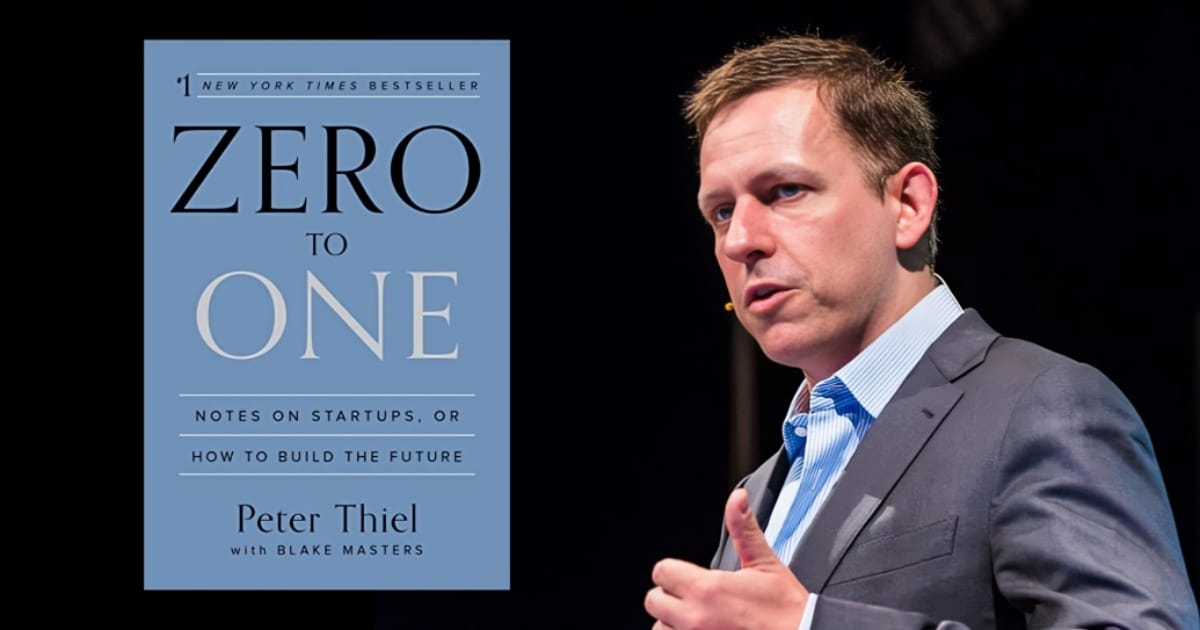
Sameer Patel
Work and keep learni... • 1y
The Thiel Fellowship The Thiel Fellowship, founded by investor Peter Thiel, grants $100,000 over two years to young people (22 and under) to leave college and pursue their own projects. This could be starting a business, scientific research, or socia
See MoreDownload the medial app to read full posts, comements and news.






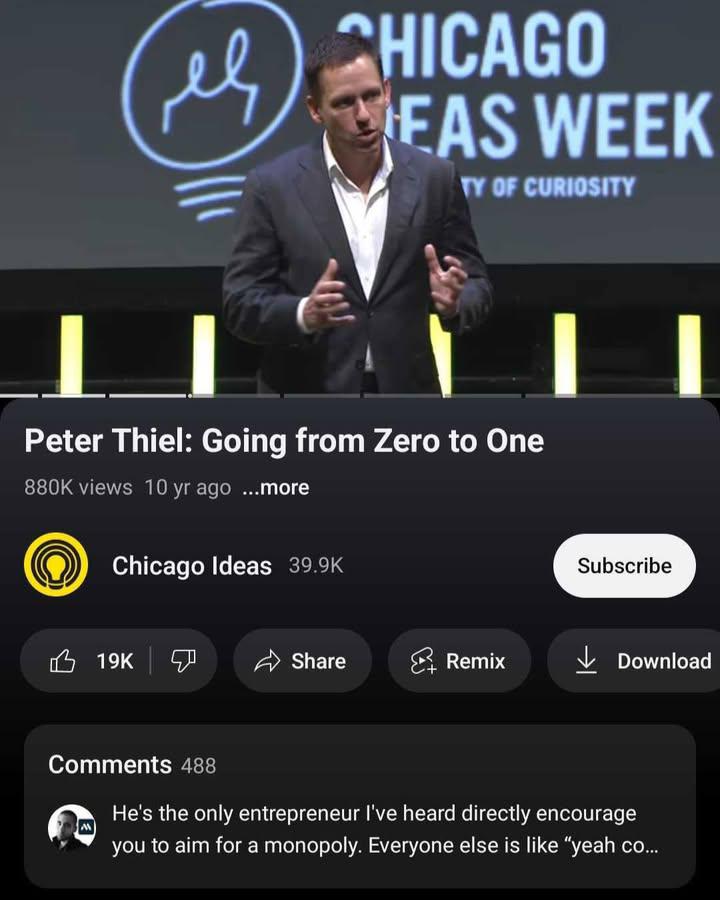
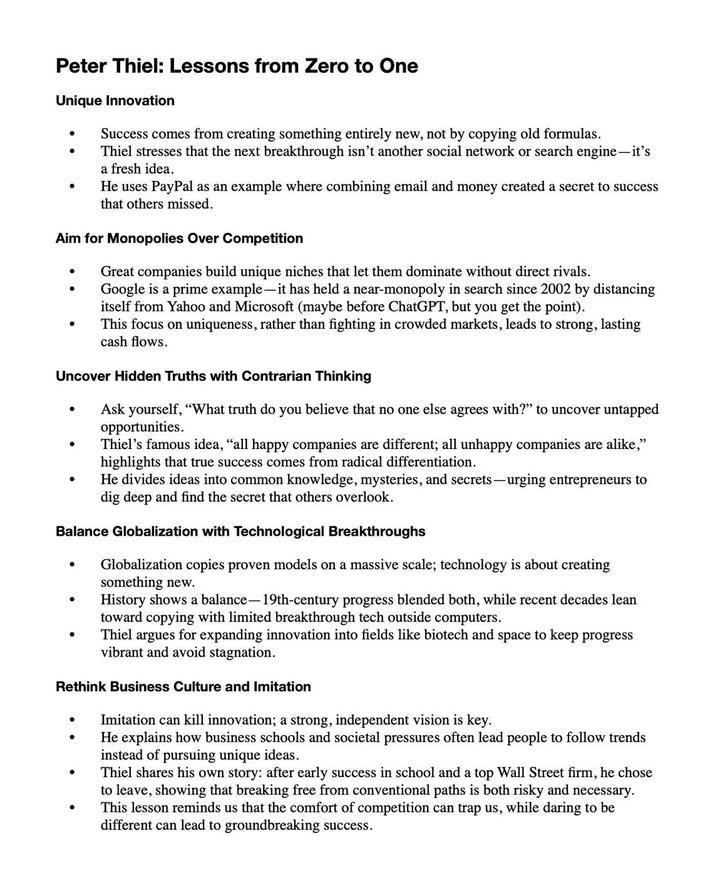



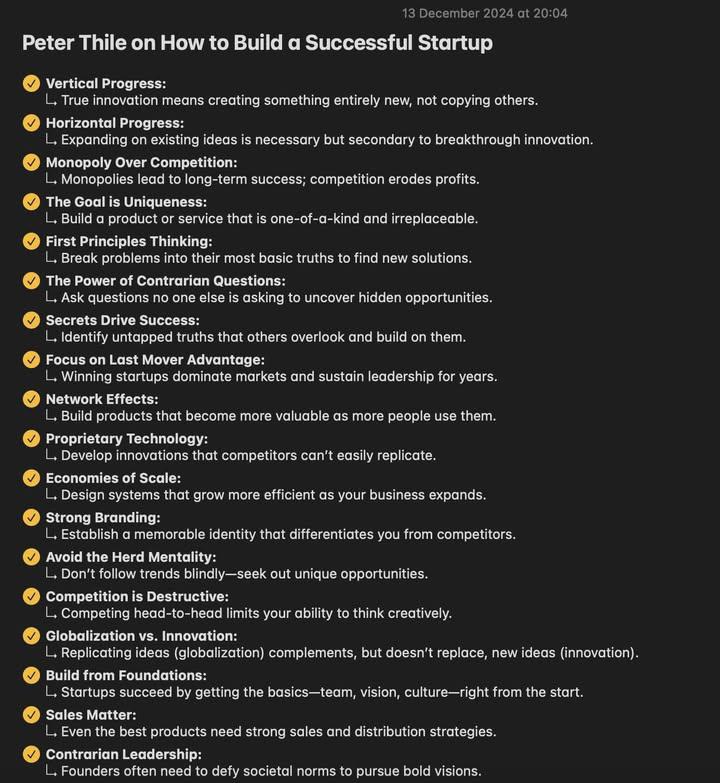





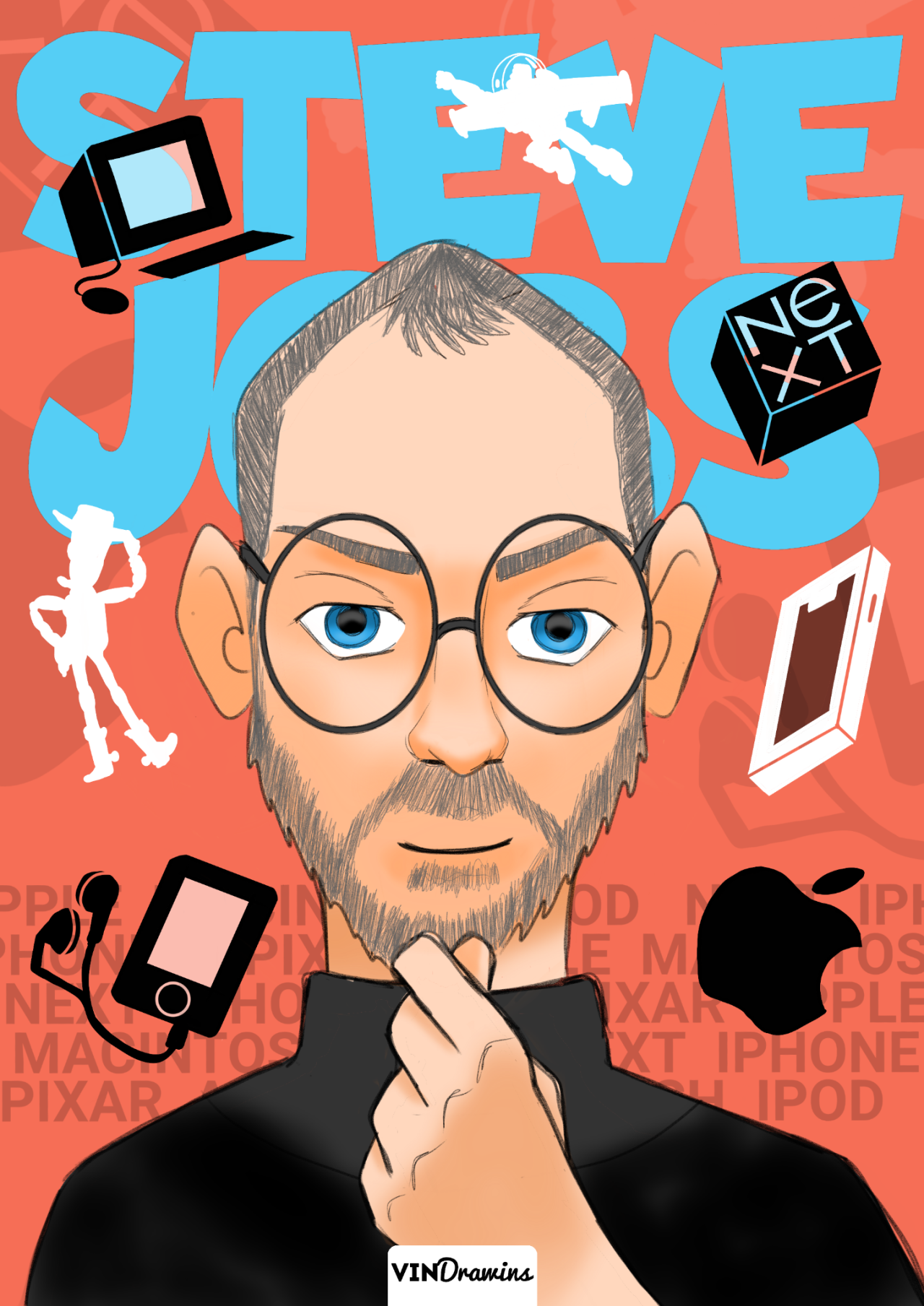
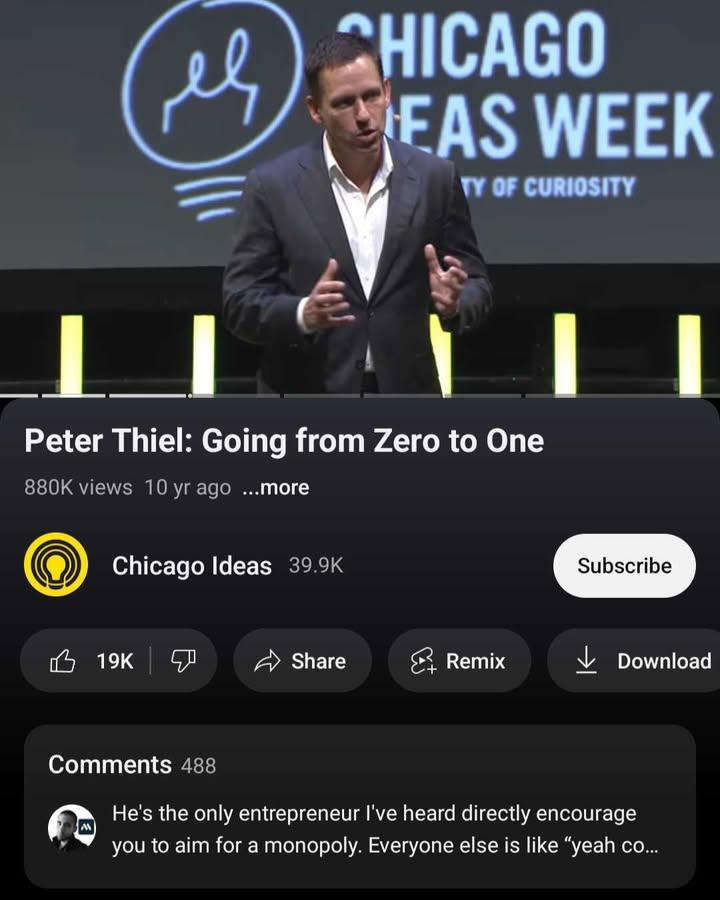
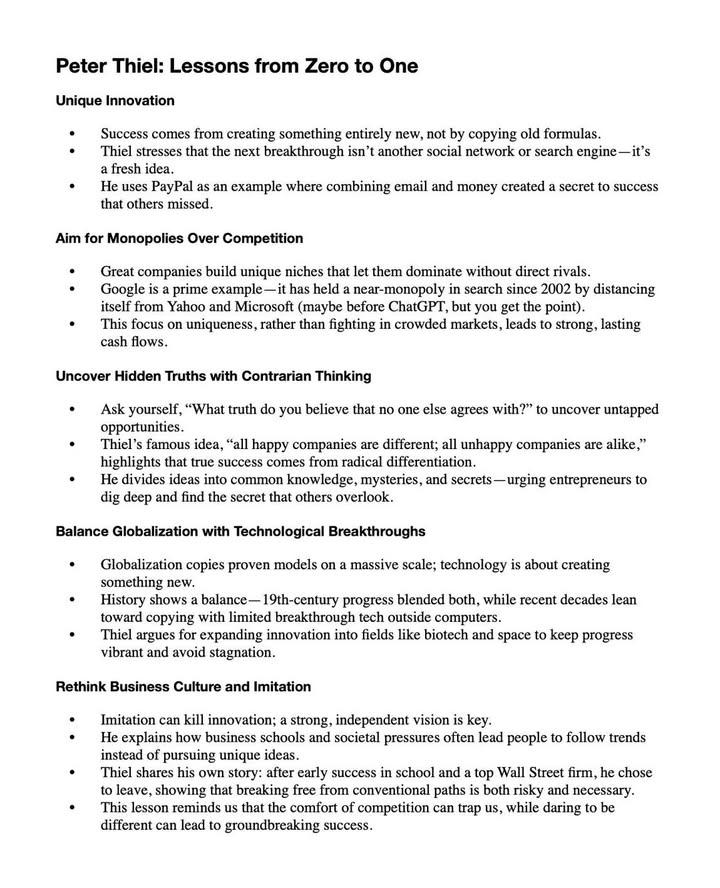




/entrackr/media/post_attachments/wp-content/uploads/2021/08/Accel-1.jpg)


















